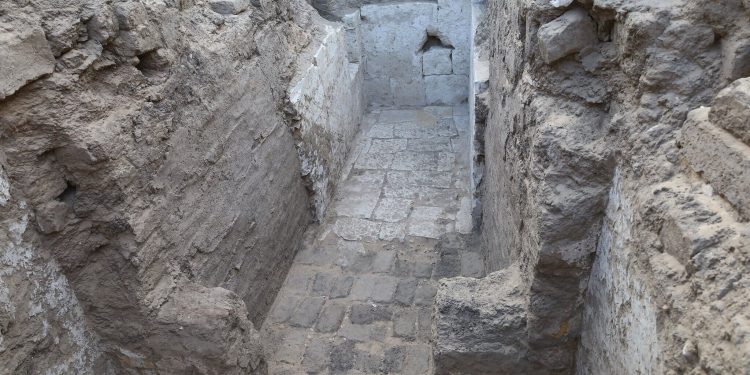Archaeologists have made a significant discovery in Egypt, uncovering the large limestone burial chamber of an unidentified ancient Egyptian pharaoh near the city of Abydos.
The tomb, which dates back approximately 3,600 years, was found seven meters underground at the ancient necropolis of Anubis Mountain.
The discovery was announced by the University of Pennsylvania Museum and Egyptian archaeologists, who began excavating the site in January.
Although the tomb was found empty, its architecture and decorations provide valuable insights into the Second Intermediate Period of ancient Egypt, a time of great turmoil and transition.
The pharaoh’s name, which was originally recorded in hieroglyphic texts on the tomb’s entrance, was unfortunately obliterated by ancient tomb robbers.
However, archaeologists believe that the tomb may belong to one of several kings from the Abydos Dynasty, including Senaiib or Paentjeni.
The tomb’s discovery is a significant addition to our understanding of ancient Egyptian history and culture, and excavations are ongoing to uncover more secrets about this mysterious pharaoh and his reign.









